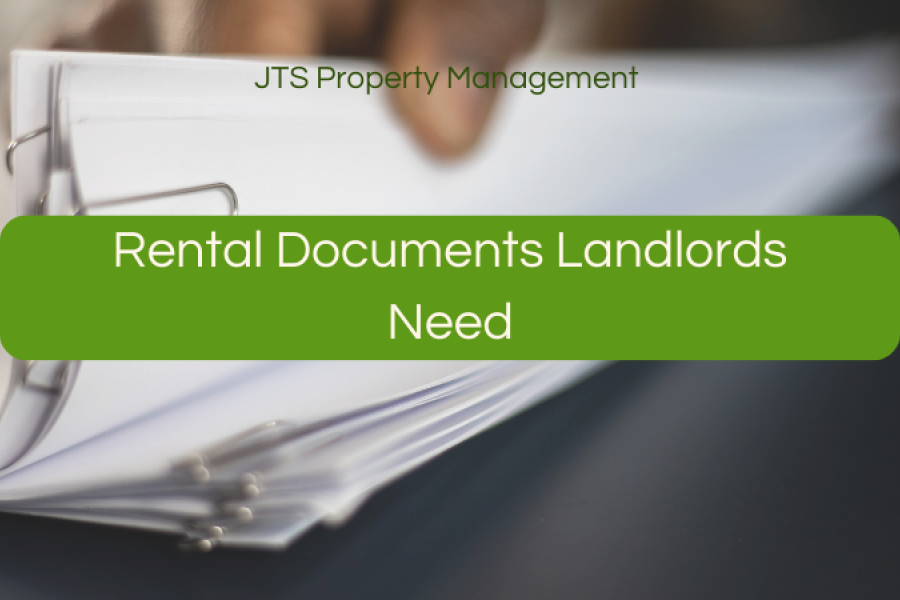To achieve success and grow your wealth as a landlord, you must remain organized. This is especially true where contracts and important documents are concerned. From lease agreements and application forms to security deposit receipts and eviction notices, landlords must be committed to keeping detailed files containing their most important documents.
While it can be challenging to keep on top of paperwork and manage a rental property, there are various strategies you can use to ensure your success! In this article, we’ll walk you through everything you need to know about keeping rental documents organized.
Benefits of Organizing Rental Documents
There are multiple benefits to keeping rental documents organized. Some of them are detailed below.
Increasing Accountability
Having copies of documents like lease agreements and landlord disclosures can help you and your tenants! When you’re able to directly reference these documents during a tenancy, it ensures all parties remain accountable for their designated responsibilities.
Solid Evidence in Court
While most landlord documents will help prevent disagreements or legal issues from escalating into lawsuits, there is a chance you may end up in court during your time as a landlord. Fortunately, you can use the documents you have on file as evidence to back up your case in court!

For instance, if you need to evict a tenant, you could use images from property inspections or a signed rental agreement and communications with tenants to prove that the renter violated their lease.
Accounting Resources
Landlords can take advantage of various tax breaks like 1031 exchanges, and claim expenses that other professionals don’t have access to. However, to successfully make claims and save yourself money, you’ll need to keep things like expense receipts and other financial documents on hand.
In addition, you can use your financial records to assess the performance of your rental. So long as your cash flow remains positive, you’re running a successful rental. If you notice a dip in revenue, you can review your expenses and see where costs can be reduced.
Rental Documents Landlords Need
Now that you know the benefits of staying organized, let’s talk about what documents you’ll need to keep on file.
Lease Agreements
Lease agreements are the most important document a landlord needs on file. Have both a digital and a hard copy on file throughout the entire lease term and even after the tenant vacates the unit.
Lease Amendments
Rules change. And long after a tenant signs a lease and moves in, you may want to make some changes to the original lease or rental agreement. For instance, you may allow a long-term tenant that you trust to get a pet, paint the unit, or sublet.

Any changes to the lease must be added as amendments and signed by both parties. These amendments will then become part lease. As such, you should keep a digital and physical copy of these documents with the tenant’s original lease agreement.
Notices
Written notices help landlords communicate with tenants. They also serve as evidence of communication when misunderstandings or disputes arise. The following are important notices that landlords commonly serve to tenants.
- Notice to pay rent
- Notice to vacate
- Notice of rent increase
- Notice of rental property maintenance
- Notice of eviction
- Notice of late fees
Always maintain a record of the notices you send out and the method you use to deliver them. Was it through hand delivery, certified mail, or registered mail? Which forwarding address did you use? Keep everything on file so you can reference it later.
Rental Inspection Reports
Every inspection you do must be documented and kept on file. From move-in and seasonal inspections to move-out inspections, every time you assess the rental, you’ll need to take notes and pictures documenting changes to the property.
Each of these inspections plays a specific role in safeguarding your bottom line and the rental’s value. For instance, move-in and move-out walkthroughs allow you to determine if the renter damaged the unit. This will help you assess whether security deposit deductions are necessary.
Rental Applications
Vacancies are inevitable, but you can minimize them! Successful landlords require all prospective tenants to fill out rental application forms before moving into their property. A rental application form allows landlords to vet the applicant’s details to verify whether or not they are suitable for their rental properties.
Generally speaking, a rental application covers things like:
- References
- Contact information
- Authorization to run credit score reports
- Proof of income
- Employment history
Make sure to keep all application material, even from tenants that have not been successful. You can reference these applications if a tenancy doesn’t work out and see if any qualified renters are still interested in your property before spending money on advertising, listing your rental and additional screening.
Tenant Screening Documents
After you’re done collecting rental applications, the next step is to start the tenant screening process. Usually, this process involves:
- Calling previous landlords to verify the prospective tenant’s rental background.
- Calling current employer to confirm monthly income and employment terms.
- Run criminal background checks.
- Run a credit score check.
Don’t forget to file every applicant’s application form in your records and note the reason(s) their application was rejected or accepted.
Bottom Line
Running a successful rental investment property begins with staying organized. However, this can be challenging for new landlords or those with a growing investment portfolio. If you want to reduce your stress, reach out to JTS Property Management! Our team is ready to help you realize your investment goals!
Contact us today to learn more about our services!


